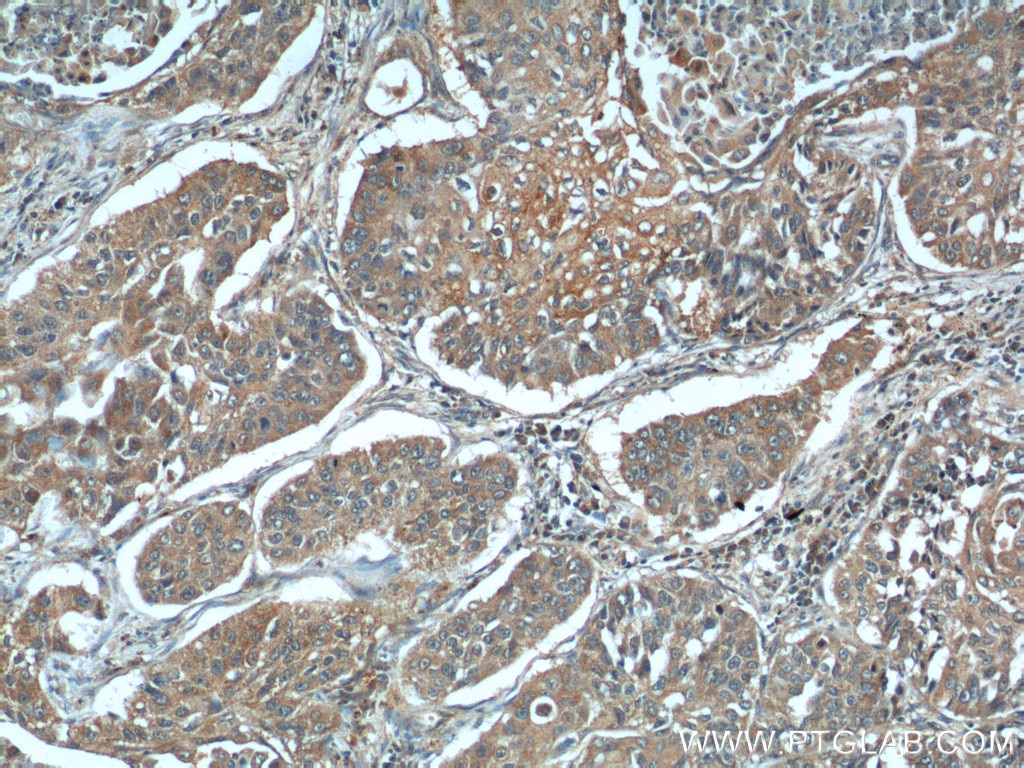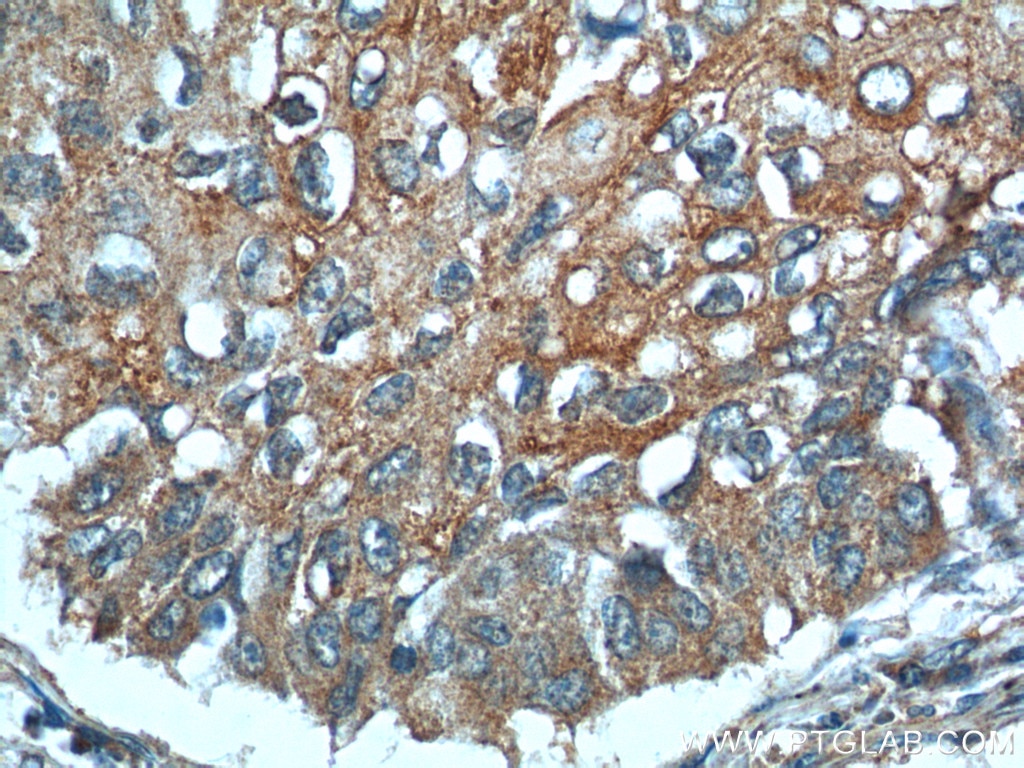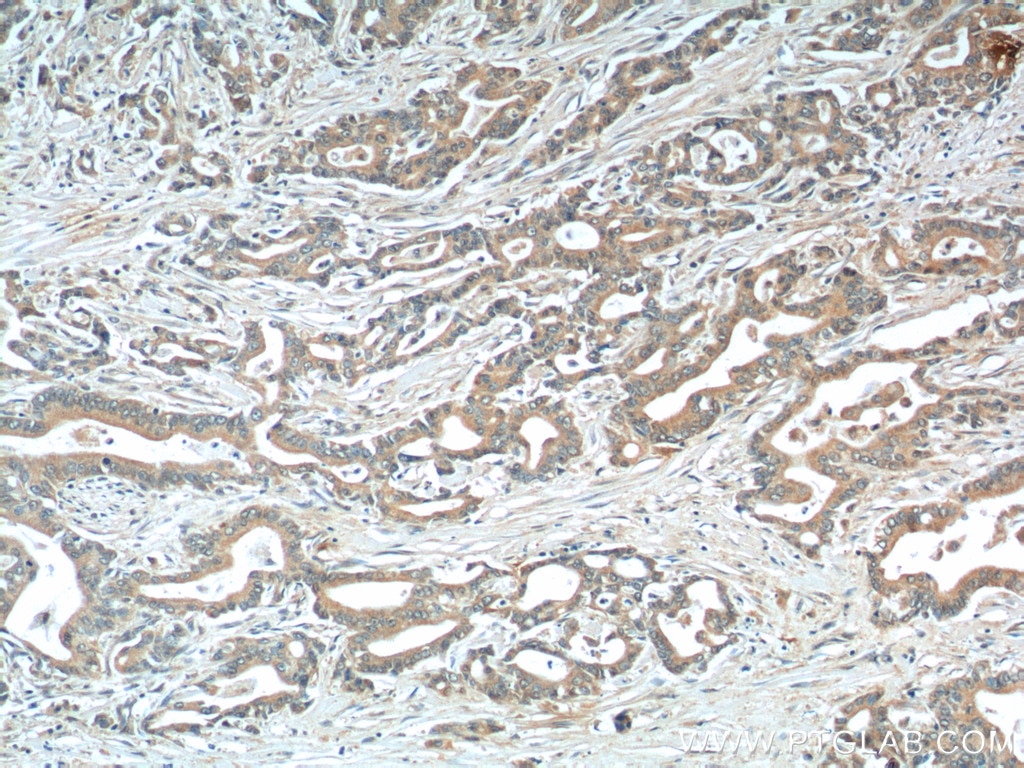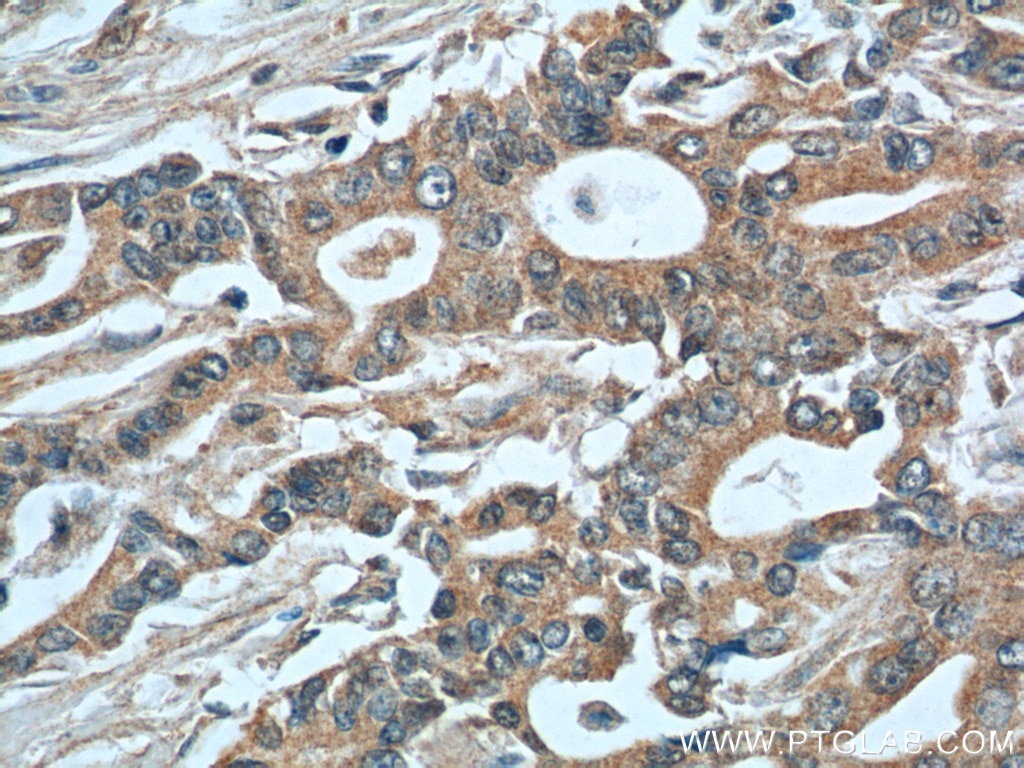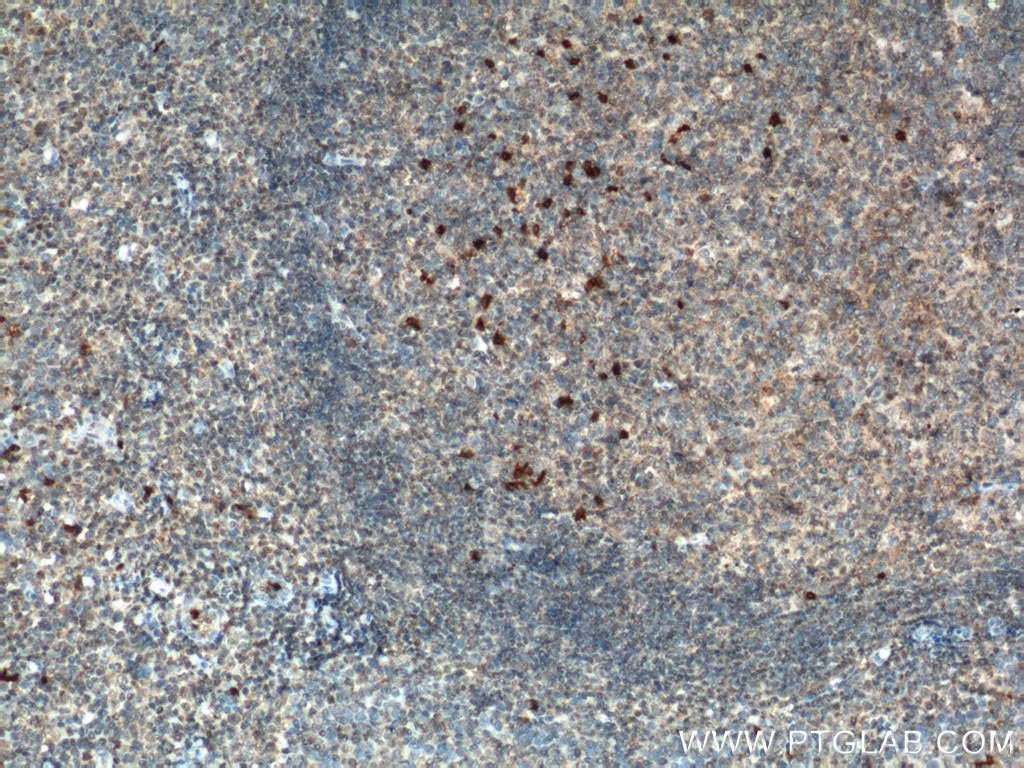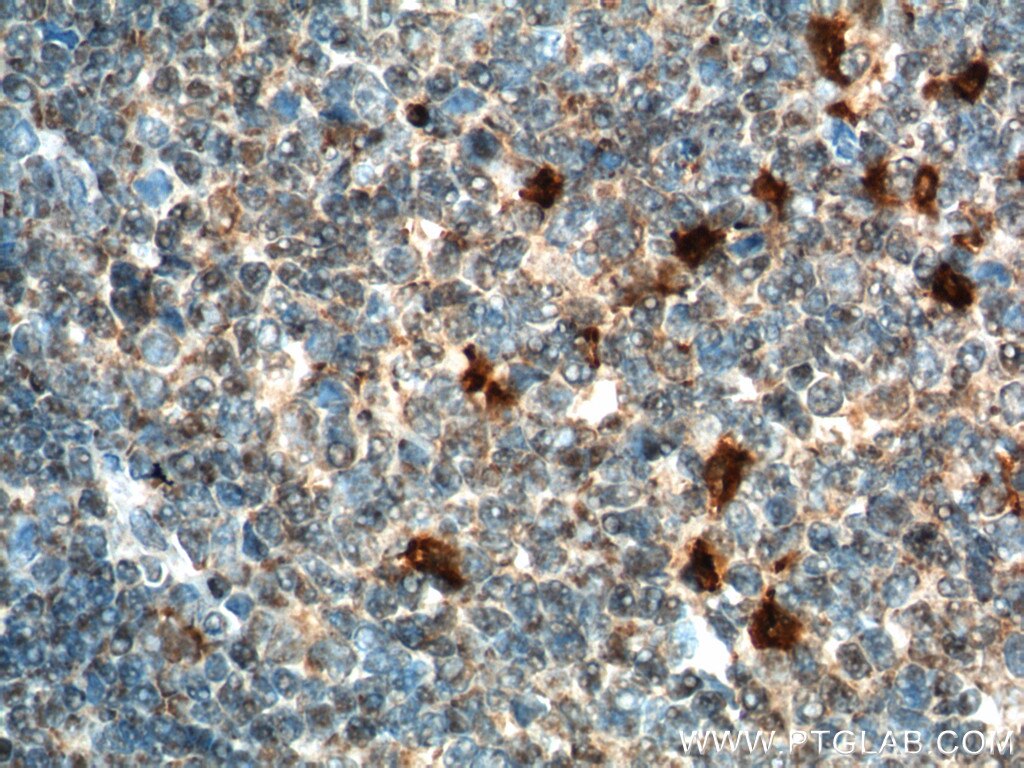CCL20/MIP-3 alpha Polyklonaler Antikörper
CCL20/MIP-3 alpha Polyklonal Antikörper für IHC, ELISA
Wirt / Isotyp
Kaninchen / IgG
Getestete Reaktivität
human und mehr (2)
Anwendung
IHC, IF, ELISA
Konjugation
Unkonjugiert
Kat-Nr. : 26527-1-AP
Synonyme
Geprüfte Anwendungen
| Erfolgreiche Detektion in IHC | humanes Lungenkarzinomgewebe, humanes Pankreaskarzinomgewebe, humanes Tonsillitisgewebe Hinweis: Antigendemaskierung mit TE-Puffer pH 9,0 empfohlen. (*) Wahlweise kann die Antigendemaskierung auch mit Citratpuffer pH 6,0 erfolgen. |
Empfohlene Verdünnung
| Anwendung | Verdünnung |
|---|---|
| Immunhistochemie (IHC) | IHC : 1:50-1:500 |
| It is recommended that this reagent should be titrated in each testing system to obtain optimal results. | |
| Sample-dependent, check data in validation data gallery | |
Veröffentlichte Anwendungen
| IHC | See 4 publications below |
| IF | See 3 publications below |
Produktinformation
26527-1-AP bindet in IHC, IF, ELISA CCL20/MIP-3 alpha und zeigt Reaktivität mit human
| Getestete Reaktivität | human |
| In Publikationen genannte Reaktivität | human, Maus, Ratte |
| Wirt / Isotyp | Kaninchen / IgG |
| Klonalität | Polyklonal |
| Typ | Antikörper |
| Immunogen | CCL20/MIP-3 alpha fusion protein Ag24069 |
| Vollständiger Name | chemokine (C-C motif) ligand 20 |
| Berechnetes Molekulargewicht | 11 kDa |
| GenBank-Zugangsnummer | BC020698 |
| Gene symbol | CCL20/MIP-3 alpha |
| Gene ID (NCBI) | 6364 |
| Konjugation | Unkonjugiert |
| Form | Liquid |
| Reinigungsmethode | Antigen-Affinitätsreinigung |
| Lagerungspuffer | PBS with 0.02% sodium azide and 50% glycerol |
| Lagerungsbedingungen | Bei -20°C lagern. Nach dem Versand ein Jahr lang stabil Aliquotieren ist bei -20oC Lagerung nicht notwendig. 20ul Größen enthalten 0,1% BSA. |
Hintergrundinformationen
CCL20, also known as macrophage infiltrating factor protein 3α, is a C-C chemokine that specifically binds to the receptor CCR6. CCL20 is produced in various tissues and by a wide range of immune cells, including neutrophils, natural killer cells, T-helper type 17 (Th17) cells, B cells, and various antigen-presenting cells, such as dendritic cells (DCs), Langerhans cells, and macrophages. Increased expression of CCL20 is likely involved in the increased recruitment of dendritic cells observed in fibroinflammatory diseases such as chronic obstructive pulmonary disease (COPD). CCL20 expression is increased by the proinflammatory cytokine IL-1 beta.
Protokolle
| PRODUKTSPEZIFISCHE PROTOKOLLE | |
|---|---|
| IHC protocol for CCL20/MIP-3 alpha antibody 26527-1-AP | Protokoll herunterladenl |
| STANDARD-PROTOKOLLE | |
|---|---|
| Klicken Sie hier, um unsere Standardprotokolle anzuzeigen |
Publikationen
| Species | Application | Title |
|---|---|---|
Gut Microbes Fusobacterium nucleatum promotes colorectal cancer metastasis through miR-1322/CCL20 axis and M2 polarization | ||
Front Cell Dev Biol EZH2-Inhibited MicroRNA-454-3p Promotes M2 Macrophage Polarization in Glioma. | ||
Phytomedicine The secretion of sIgA and dendritic cells activation in the intestinal of cyclophosphamide-induced immunosuppressed mice are regulated by Alhagi honey polysaccharides. | ||
Oncol Rep DEPDC1 drives hepatocellular carcinoma cell proliferation, invasion and angiogenesis by regulating the CCL20/CCR6 signaling pathway. | ||
Oncol Lett Overexpression of B7-H4 promotes renal cell carcinoma progression by recruiting tumor-associated neutrophils via upregulation of CXCL8. |
